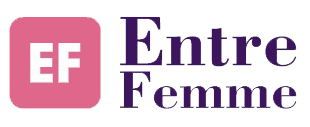The Power of No : Why Saying Yes to Everything is Burning You Out
In a world that constantly demands more, saying YES can feel like the only path to success, popularity, or even just keeping up. But what if that relentless people-pleasing is quietly eroding your energy, your time, and even your sense of self? This article dives into The Power of No, exploring why an endless stream of YESES isn't just making you tired—it's actively burning you out. Discover how reclaiming your boundaries can unlock more time, more peace, and a more authentic you
- Ornella Jameson
- Jul 20, 2025
- 0 Comments
- 2435 Views
Hey there, amazing women! My name is Aïssatou Diallo, and I'm a trainer and community organizer based in the beautiful city of Dakar, Senegal. For years, I thought leadership meant saying "yes" to every single request that came my way. And I mean every request.
Need someone to moderate a two-hour panel tomorrow morning with zero prep? "Yes!" Overwhelmed and need someone to handle workshop logistics when I haven't had a day off in weeks? "Yes!" Colleague drowning in a report at midnight and needs help rewriting it? "Yes!"
Sound familiar?
For me, it wasn't just about building my network (though it certainly helped). I was desperate to prove my worth, to show that I was indispensable, to carve out my space in rooms often dominated by male voices or more experienced colleagues. It felt like a way to assert myself, and honestly, a survival strategy in a high-pressure environment.
But that version of leadership? It was slowly, silently, burning me out.
The T.K.O. from Burnout
It took a full-blown burnout to hit the brakes finally. And in that forced silence – that moment of being "flat like a boxer in the fifth round" – a crucial realization hit me: true power isn't found in exhaustion. It's found in the ability to say "no" at the right time, under the right circumstances. It's about setting boundaries.
Saying "no" isn't about shirking responsibility or rejecting others. It's a profound act of self-respect. And in a world that often expects women to be endlessly available, constantly giving, and perpetually "on," setting boundaries becomes a potent, even feminist, act.
The Empty Jar Analogy
Let me explain it in a way you can visualize. Imagine your energy, your time, your well-being – like a jar full of water. If you constantly pour from that jar to serve others, to help, to volunteer, to "say yes," but you never take the time to refill it, what happens? You end up empty. And an empty vessel can't give anything to anyone, can it?
Saying "no" is like putting the lid on that jar for a while. You're not shutting the world out; you're preserving yourself. You're giving yourself space to recharge, so you can then contribute with clarity, energy, and genuine purpose.
The Moment Everything Changed
I recall one specific moment, aside from the burnout itself, that changed my perspective forever. I was invited to join the organizing committee for a large women's forum. Now, this was the kind of opportunity I would have jumped at before, even if I was already juggling three phones and sipping cold coffee, barely keeping it together.
However, at that point, I was on the cusp of launching a mentorship circle for young girls from underprivileged neighborhoods, a project that was significant to me. I was already teetering on the edge of another burnout.
So, for the first time in my life, I said no. Politely, but firmly. No convoluted excuses, no long explanations. "Thank you for the invitation, but I can't commit this time."
And guess what? The world didn't stop turning.
At first, a wave of guilt washed over me. But very quickly, it was replaced by something else: clarity, space, and a powerful new kind of strength.
Starting a Movement: "Set Boundaries, Lead Boldly"
That experience made me look around. How many incredible women were pretending to be fine, smiling on the outside, but silently crushed under a mountain of accumulated "yeses"? How many were utterly exhausted but dared not say "no" for fear of being labeled selfish, fragile, or unreliable?
That's why I decided to create a safe space for honest conversations. Soon, I'll be launching a series of workshops called "Set Boundaries, Lead Boldly." These will be intimate, powerful, no-filter gatherings where we can openly discuss the mental load we carry, the elusive quest for balance, our ambitions, and, most importantly, the immense courage it takes to protect ourselves while staying deeply committed to our passions and our communities.
If this resonates with you, or if you know a woman who desperately needs permission to say "no" without the crushing weight of guilt, please stay tuned. I'll need your support to make this kind of leadership a widespread movement.
The Roadmap to Sustainable Engagement
What I've learned, and what I now passionately teach, is this: setting boundaries doesn't mean shutting down. It means setting clear expectations. It means an act of profound self-respect. Boundaries are the roadmap to sustainable engagement. We cannot effectively support others if we're running on empty. We can't genuinely lead a collective movement if we're silently sacrificing ourselves on the altar of perpetual "yes."
Feminist leadership isn't about being everything to everyone. It's about showing, by example, a different path: one where our "no's" are heard, our limits are respected, and our well-being genuinely matters.
Today, I continue to work with young women, collaborate with local associations, and advocate for the recognition of invisible labor and the importance of personal balance. More than ever, I am convinced that the future of leadership lies in our collective ability to say "no," to slow down, and to choose intentionally.
So, if you're struggling with guilt or self-doubt about setting your boundaries, please remember this: Every "no" that protects your peace is a powerful "yes" to your mission.
What's one "yes" you've given recently that you wish you could turn into a "no"? Share your thoughts in the comments below!

 | Unlock Success with Our Guide
| Unlock Success with Our Guide



0 Comments